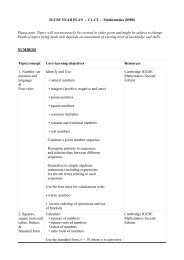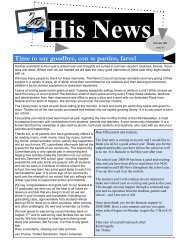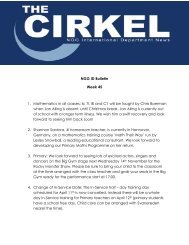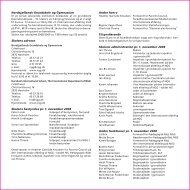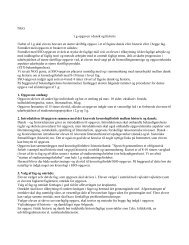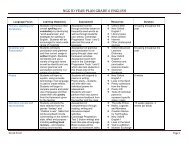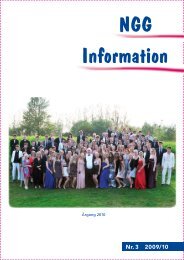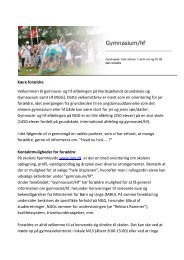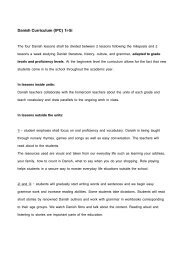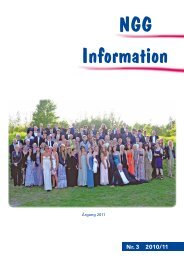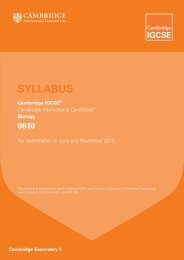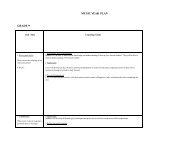IGCSE Physics
IGCSE Physics
IGCSE Physics
- No tags were found...
Create successful ePaper yourself
Turn your PDF publications into a flip-book with our unique Google optimized e-Paper software.
Practical assessment7.2 Paper 5: Practical TestThis paper is designed to assess a candidate’s competence in those practical skills which can realisticallybe assessed within the context of a formal test of limited duration. The best preparation for this paper isfor candidates to pursue a fully integrated course in which practical work is a normal and natural part of theteaching.Candidates may not use textbooks in the examination, nor any of their own records of laboratory workcarried out during their course.Candidates may be asked to carry out exercises involving:• the measurement of physical quantities such as length or volume or force• cooling and heating• springs and balances• timing motion or oscillations• electric circuits• optics equipment such as mirrors, prisms and lenses• following specified procedures using simple apparatus, in situations where the method may not befamiliar to the candidate.Candidates may be required to do the following:• select the most appropriate apparatus or method for the task and justify the choice made• follow written instructions for the assembly and use of provided apparatus, for example when usingray-tracing equipment or connecting electrical circuits• draw, complete and/or label diagrams of apparatus• carry out the specified manipulation of the apparatus, for example:– when determining a derived quantity, such as the extension per unit load for a spring– when testing/identifying the relationship between two variables, such as between the p.d. across awire and its length– when comparing physical quantities, such as two masses using a balancing method• take readings from an appropriate measuring device (for example thermometer, rule, protractor,measuring cylinder, ammeter, stopwatch), including:– reading a scale with appropriate accuracy and precision– interpolating between scale divisions– correcting for zero errors, where appropriate• take repeated measurements, where appropriate, to obtain an average value• describe and/or explain precautions taken in carrying out a procedure, including the control of variables• record their observations systematically, for example in a table, using appropriate units and a consistentand appropriate number of significant figures• process their data as required, using a calculator where necessary• present and analyse their data graphically, including interpolation and extrapolation, and thedetermination of a gradient, intercept or intersection• draw an appropriate conclusion, justifying it by reference to their results• comment critically on a procedure or point of practical detail and suggest an appropriate improvement• plan an investigation including suggesting suitable apparatus and techniques.Cambridge <strong>IGCSE</strong> <strong>Physics</strong> 0625. Syllabus for examination in 2015.37



